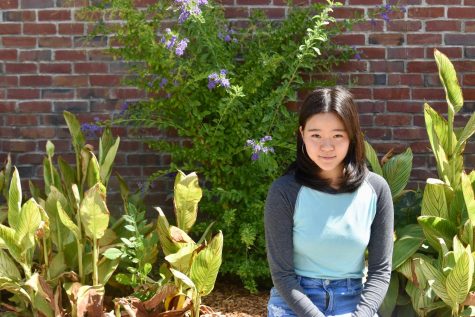Holding onto my childhood passion
October 24, 2019
What began as an ambitious attempt to one-up an academically-outstanding classmate in kindergarten transformed into my ultimate passion. The piano and I go way back; I remember how I raced to my Taiwanese teacher’s apartment on Tuesday afternoons for lessons, disciplined myself to give up playdates for practice time and experienced how my fingers trembled when I performed at my first recital.
As children, we were all faced with the question, “What do we want to be when we grow up?” It’s not surprising to hear answers like doctors, athletes and teachers. In fact, according to Forbes, some of the most popular childhood dream careers in 2015 were teachers, firefighters and pro athletes.
I dreamed of becoming a pianist when asked the question. At that time, I believed that there was nothing more satisfying than the thunder of applause on stage and the feeling of accomplishment after completing a performance.
When I was 5, my parents gave me the opportunity to try out swimming, dancing, drawing, soccer and piano. By the time I returned to America as a third grader, I stopped swimming and dancing. Two years later, I stopped playing soccer and attending drawing classes. As a high school freshman, I put a pause on every single activity I devoted time to in my childhood — except for piano.
I thought of many potential answers as I reflected on the reason for my persistence with piano: the rush of excitement during competitions, the ability to convey emotion through treble and bass clefs, the opportunity to collaborate with other musicians. While those reasons did inspire me to continue my musical career, in the end, I could only settle on one main motivation: my teacher.
The first day I met my current piano teacher, I went home bawling. Her expectations for her students were beyond my 10-year-old imagination. She would sing along with her students playing in class, make those who showed little improvement practice at her house after lessons and host rehearsals on the weekends to ensure that all her students were ready for competitions and recitals. I only paid for one hour lessons, yet she taught me for at least three hours every session simply because she believed that it is impossible to teach students five pieces of music within the paid time-limit.
As a beginner, I practiced the piano for hours because she made it clear that she would stop teaching those who lacked improvement and the ability to meet her expectations. Ultimately, this fear guided me to build a solid technical foundation in piano. Having her push me to become a better pianist brought me many unexpected opportunities, whether it was truly appreciating music, organizing chamber music, self-composing or teaching the instrument to others. And because of her guidance, there was not one second where I contemplated on quitting the activity.
Just a few days ago, I came across the video of my first piano recital. I laughed as I recognized the proud smile etched on my 7-year-old self, who, at that moment, felt like a professional pianist despite playing simple pieces.
This moment of reminiscence made me realize how important our childhood passions are. If I had not been so sure in pursuing a piano career as a young child, I could not have had the opportunity to play in competitions, perform in recitals and teach students the way I do today. In fact, I wouldn’t have been able to bring myself to appreciate music and the arts as a busy MVHS student if it weren’t for the piano.
The passion accompanied me for more than 12 years, taking me from Taiwan to America, practices to performances, audience to artist and most importantly, childhood to adolescent. I grew up with piano and I cannot imagine myself loving another activity more than playing music.


















